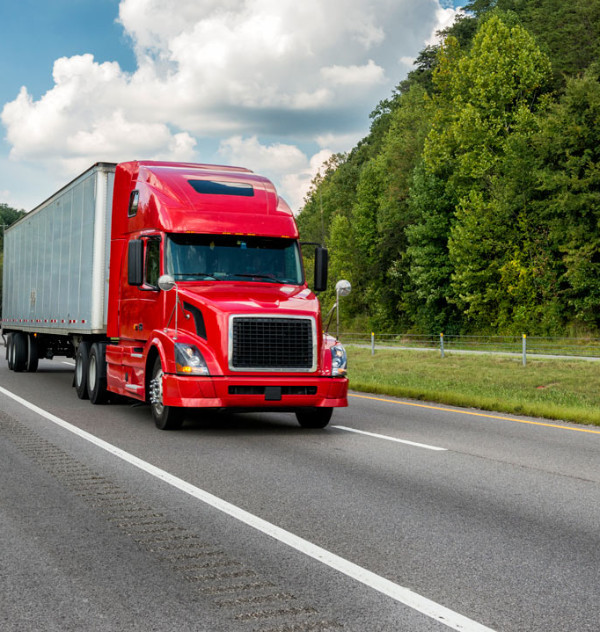Before you skip researching cargo insurance companies, make sure you know what they cover and how coverage could benefit your business.
Operating a trucking company gets expensive. Fees can rack up quickly from the start. You’ll be looking at hundreds of dollars in getting your business registration, US DOT number, and UCR fee. Then there’s the cost of buying your vehicles. Even if you go with a used truck, you could pay anywhere from $15,000 to $175,000.
There’s truck repair, with regular maintenance averaging around $15,000 annually – and that’s assuming nothing else goes wrong. Fuel for the average 18-wheeler can rise to over $70,000 in a year.
Most trucking companies want to find ways to cut costs without putting themselves at financial or legal risk. Some try to do that by keeping insurance expenses as low as possible.
While you can save money by looking for insurers that offer fair rates and good coverage, you should think twice about skipping some coverages altogether. For example, cargo insurance companies can make a big difference if something goes wrong while you’re hauling a client’s goods or materials.
What Will Cargo Insurance Companies Cover?
Cargo insurance companies are there to protect you from losses related to damaged or missing cargo. It’s impossible to predict what will happen out on the road or while your truck is parked somewhere. This type of coverage will usually pay out if you lose cargo due to a natural disaster, abandonment, act of war, piracy, customs rejection, or vehicle accident.
It is different from the coverage you typically get with carrier liability. This type of policy is available in two main types: land and marine.
Marine isn’t usually applicable unless your company handles shipping cargo in the air or over the ocean. This type is common for international shipments where things like water-related weather conditions and piracy can be a concern.
Land cargo insurance is available for small utility vehicles and trucks. It protects you in case of theft, damage, and other risks that are common in land freight shipping. It is also typically only used for domestic shipments.
Cargo insurance companies should be open about what is covered and what isn’t. Most policies do not pay out if the cause is related to poor or inadequate packaging or flawed products. They may also have limitations related to the type of freight you are hauling. For example, high-value, fragile, or hazardous materials may be excluded. Some electronic products may also be ineligible.
How Much Does Cargo Insurance Cost?
The cargo insurance companies that you speak to should be able to provide an estimate based on your specific needs. Your annual cost will be directly related to your policy limit. Average yearly premiums usually range from $400 to $1,800.
The typical annual cost for a policy with a $50,000 limit is between $400 and $700. That increases to between $800 to $1,400 for a policy limit of $100,000. If you want a cargo insurance policy with a $250,000 limit, then expect to pay between $1,100 and $1,800 annually.
Cargo insurance companies will also look at two other factors to calculate your premium. One is what you are shipping. Something that comes with a higher risk like natural gas will likely cost more to insure compared to other types of freight.
The other factor is your loss history. If they see an excessive number of losses in the past, the company may view you as a high-risk and charge a heftier premium.
What is covered will also play a role in the amount you have to pay to get coverage. Some of the most common cargo insurance coverages include:
- Reefer Breakdown – Pays for cargo lost due to a malfunctioning refrigeration equipment
- Loading and Unloading – Pays for losses that occur when cargo is loaded or unloaded
- Hijackings – Pays for losses related to cargo hijacking
- Sue and Labor – Pays for damaged goods due to an incident
- Dishonesty – Pays for losses due to driver theft
- Earned Freight – Pays for lost income due to damaged cargo that is undeliverable
- Debris Removal – Pays for removal of cargo dropped on waterways or roads
- Pollution Liability – Pays to clean up spills like gasoline
- Water Damage – Pays for losses related to moisture and water leaks
Am I Legally Required to Work with Cargo Insurance Companies?
There are situations where you may not be legally required to work with cargo insurance companies. Everyone must have liability insurance, but cargo can be optional depending on what you are hauling.
The Federal Motor Carrier Safety Administration (FMCSA) requires trucking companies that transport household goods as well as freight forwarders of household goods to have a minimum amount of cargo insurance.
The FMCSA website defines household goods as “personal items that will be used in a home.” That includes products that are “shipped from a factory or store if purchased with the intent to use in a home and transported at the request of the householder who pays for the transportation charges.”
Cargo Insurance Companies Can Protect Your Business
The value of freight can vary wildly and can add up fast. Can your business recover if you have to reimburse a client for a lost or damaged shipment? Even if you can, is it going to be less than the cost of buying cargo insurance?
In most cases, cargo insurance is the better option – or may be the only legal option. Protect yourself and your business by visiting InsureTrucking.com to get a fast, free online quote for truckers insurance.

